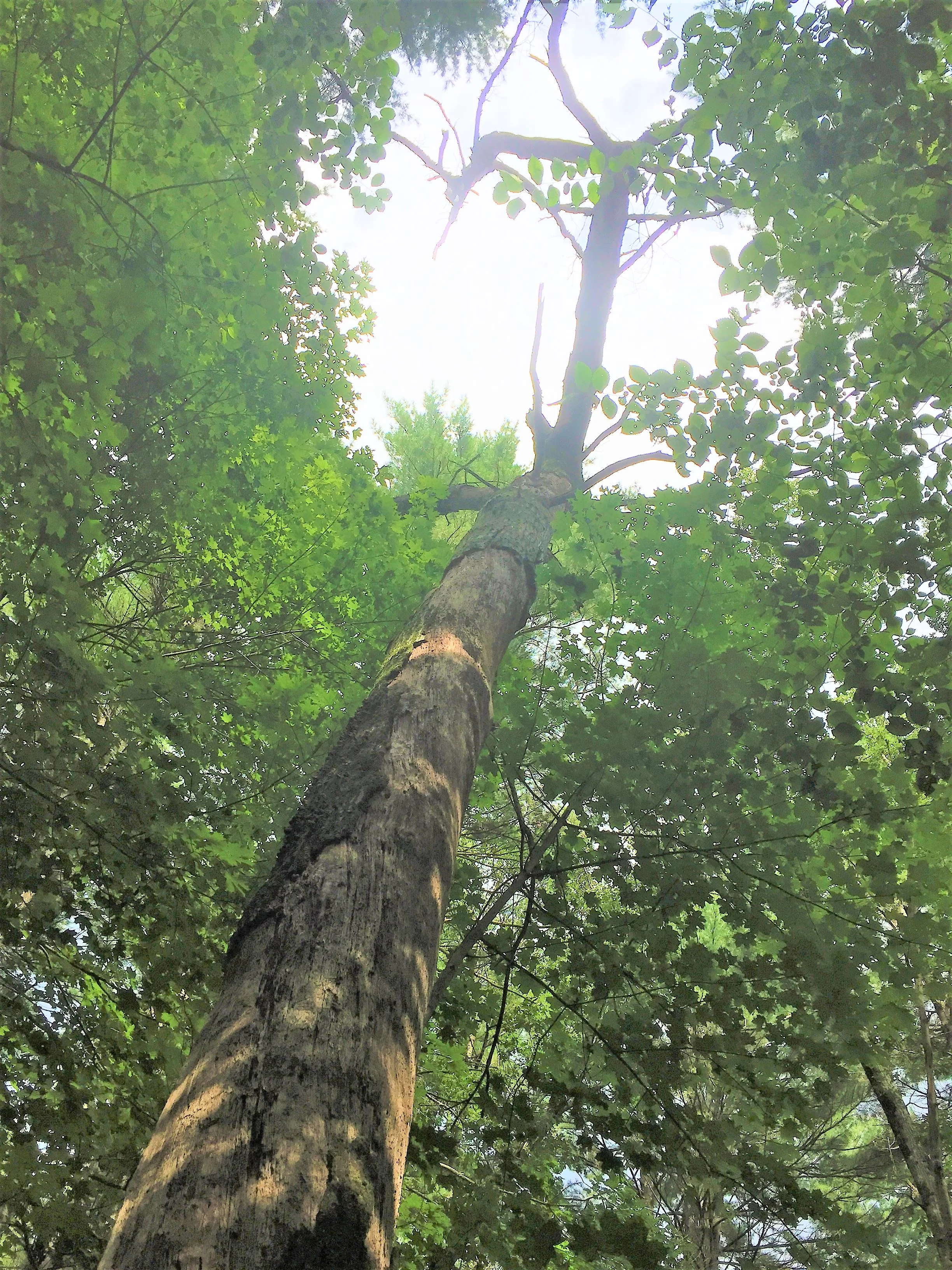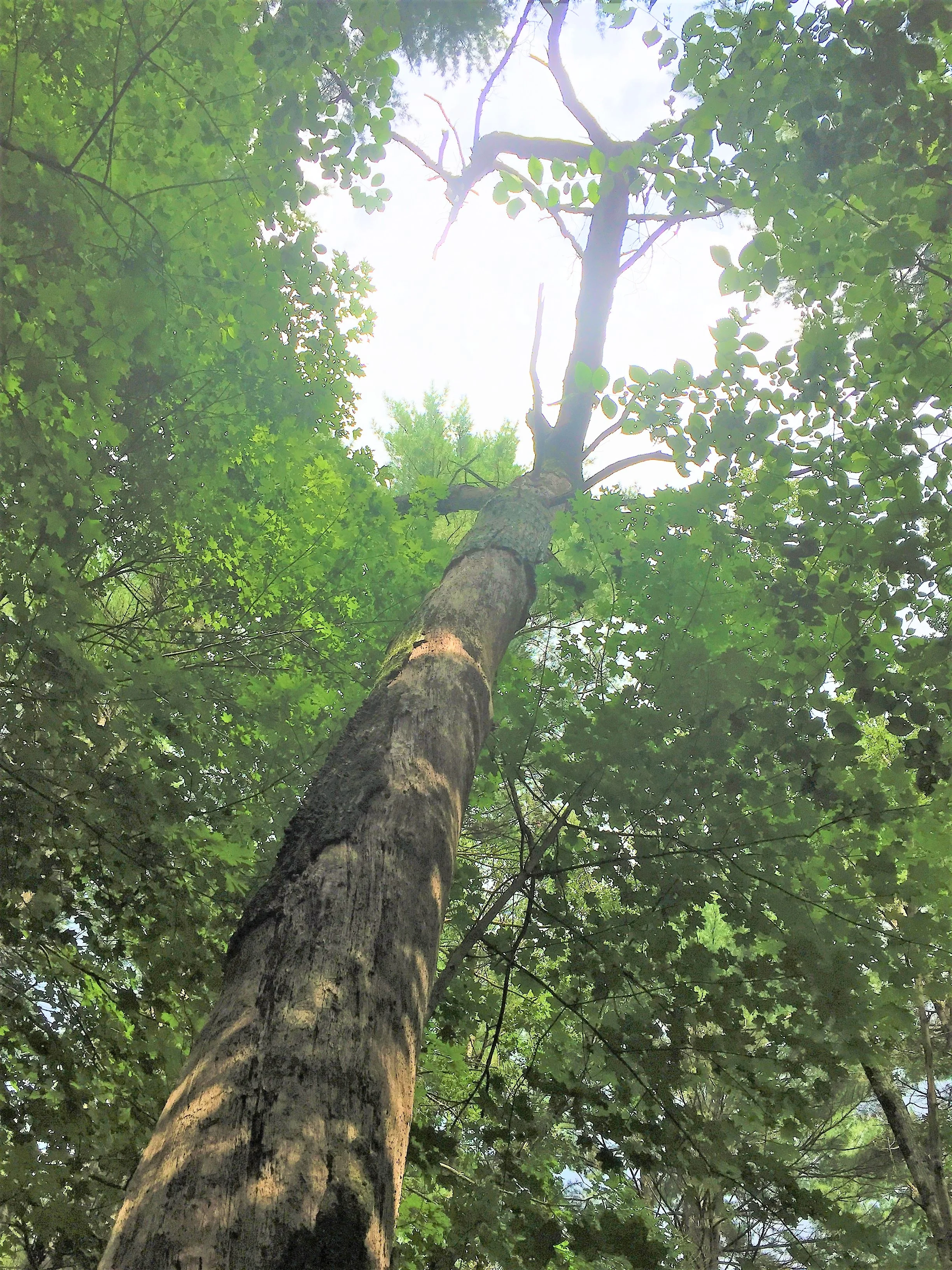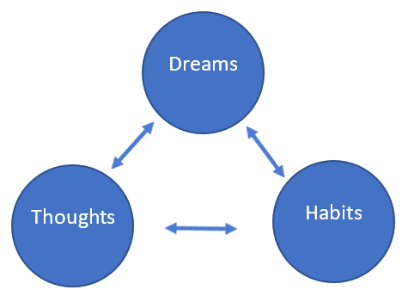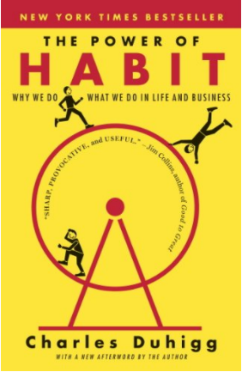One of my favorite places is the Bedford Reservoir – we call it “the Res.” I walk our dogs there almost daily, and have established a good relationship with the place over the past thirty years. I have been on each of the several trails and side branches hundreds if not thousands of times. I’ve seen them in every season and in all sorts of weather. I’ve walked with those trees when I was in my thirties and knew everything, and in my sixties as I’ve come to realize how little I know.
I was in the Res the other day, when I noticed an old standing dead tree trunk just off the side of the trail. Despite the fact that I’d passed it thousands of times, I’d never noticed it before! And there, in that moment, I had a revelation. I connected a couple of dots related to my work as a coach. I’m going to tell you about those dots, which are “Dreams,” “Thoughts,” and “Habits.”
Dreams
I help people transform their lives, helping them find that sweet spot where their resources, energy, and actions are aligned perfectly with their dreams. For many, just the idea of clearly articulating what they want is a huge first step. Have you done that? Do you know, truly, what you value and what makes your heart sing? Asking these questions is easy - yet many don't even get that far. Answering them, though, requires some careful thought. I recommend you give it a try!
Thoughts
Conecting the Dots
A lot of the work then involves helping clients understand how their thoughts are affecting their potential. Many have limiting beliefs about whether they’re good enough, or smart enough, or, well, just enough. When these thoughts make us feel uncertain or scared, we might decide that our dreams are unattainable and just give up on them. We settle into reluctant acceptance that this is just the way things are.
What’s the solution? Change our thoughts! It’s one of the simplest ideas there is: Change your thoughts, which will change your emotions, which will enable you to change your behavior. We coaches help our clients recognize their unhelpful thoughts and change these to drive new, helpful behaviors. There’s a lot of brain science that helps us understand how and why this process works. We’re not going to go into that here, but know this: It works – sometimes! Sometimes, though, people just can’t seem to change their own unhelpful behaviors.
Habits
Which brings us to the third dot: Habits. We have amazing brains. Unlike other creatures, we can imagine potential futures. This sort of creativity requires a lot of brainpower. To free up our brains to do this high-end, creative work, we have evolved to relegate repetitive, menial tasks – like breathing, driving a car, brushing our teeth in the morning, or washing the dishes – to automatic habits. Things we do over and over are managed by either more primitive parts of our brains or by automatic habit. Think of how much active mental energy it really takes to start your car. Not much. You sit down, swing your legs in, close the door, fasten your seat belt, adjust the mirrors, step on the brake or clutch, and turn the key. These steps are automatic, which allows you to actively pay attention to more important things like planning your day.
Habits allow us to NOT see the many things around us that don’t normally require our attention. We actively turn our brains OFF when we’re in a familiar situation. So there I was, in the Res, experiencing the happy vibe of being out in the woods, and I totally missed that tree – thousands of times! That helped me remember how powerful our habits can be. Sometimes, changing behavior has NOTHING to do with changing how we’re thinking and EVERYTHING to do with understanding the Habit Loop.
One of the most influential books I’ve recently read is The Power of Habit by Charles Duhigg. He describes how our brains create and execute the habit loop this way: We experience a CUE like “I’m bored at my desk.” We then, mindlessly, execute a ROUTINE, like “I’ll get up and have a snack.” We’re then REWARDED by something like a change of scenery, or the sweetness of that cookie. Cue-Routine-Reward. That’s the habit loop. To change unhelpful routines, we work to identify them, recognize what cues that behavior, and then either tweak the routine itself or the reward we give ourselves. These principles have guided the success of Alcoholics Anonymous, consumer marketing giants like McDonalds and Proctor and Gamble, and the strategy that brought the Indianapolis Colts to victory over the Patriots in the 2006 AFC Championship game and their first Super Bowl win since 1970.
Achieving our dreams is truly possible, if we’re able to control our thoughts, AND able to do the harder work of changing our habits. Newton discovered gravity under an apple tree in England. My understanding of how habits shape our success came home for me under a dead tree in the Res. Perhaps your understanding of how thoughts and habits shape your potential won’t change THE world, but it can surely help you change YOUR world!
If you’d like to dig deeper, address a specific situation or habit, or bring it to a team you’re supporting, let me know.
Pete Colgan works with sales and marketing professionals who want fulfillment so they can manage stress, build thriving business and create successful, happy lives. Consider investing in yourself to truly understand what brings you joy and how you can use that awareness to increase revenue and kick your life and career into high gear. Whether through one-on-one coaching, or a cost-effective group coaching program, what you discover will help the work you do feel effortless! Click here to learn more.
